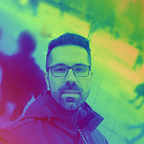The Importance of Being Skeptical
Misleading MSM Coverage of Seattle CHOP Shows the Value of Skepticism
We’re awash in misinformation about COVID-19, from viral YouTube videos featuring discredited scientists to Facebook posts planted by conservative groups, click-bait factories, and even Russia.
Just last week, an epidemiologist from Yale, Dr. Harvey Risch, penned an op-ed in Newsweek championing the controversial drug hydroxycloroquine as “the key to defeating COVID-19.”
Risch relies on older, shoddy, discredited studies to support his position while ignoring more recent, rigorous studies that prove hydroxycloroquine has no benefit and much risk for COVID-19 patients.
Yet he is an epidemiologist from freaking Yale, published in one of the world’s leading news magazines. In normal times, that would be enough to trust what he says, but now, evidently, we can’t rely on an author’s credentials or a publication’s reputation as a convenient short-hand for judging credibility.
So how do you defend yourself from false information that can manipulate your judgments and decisions, that can leave you wondering what’s true and whom to trust?
Healthy skepticism is one of the surest ways to recognize fake news, misleading reporting, or other types of misinformation.
